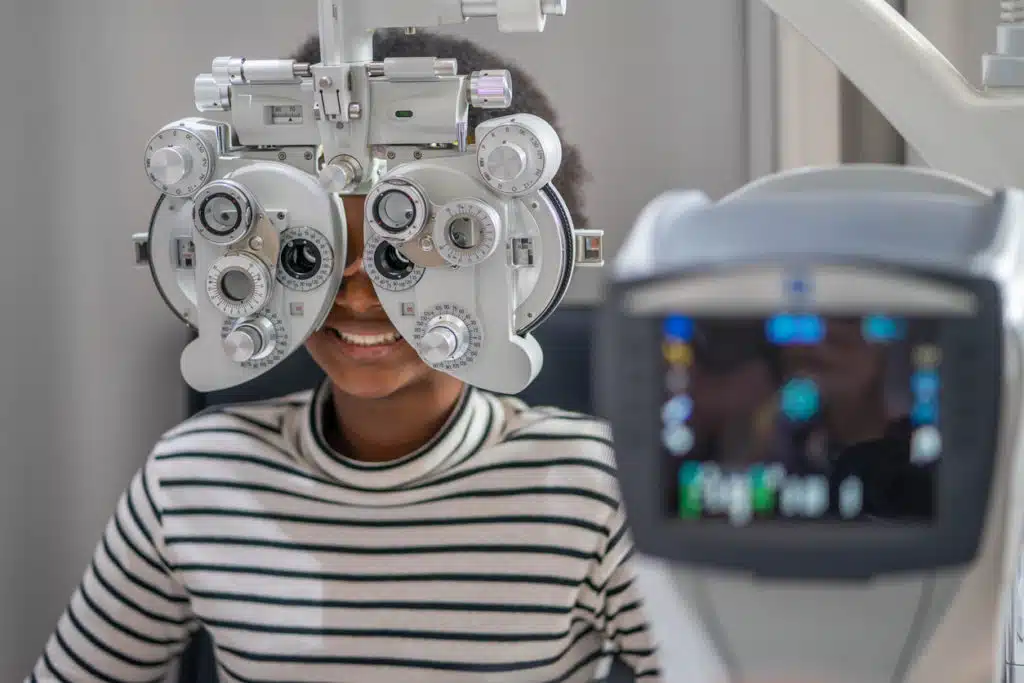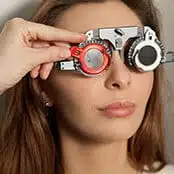
According to the American Optometric Association, adults should get an eye exam every two years. Once you reach the age of 65, you should get an eye exam every year. However, recommendations may change depending on factors such as age, health, and family history.
An eye exam involves a series of tests to evaluate different aspects of your vision and eye health. A comprehensive eye exam is performed by an ophthalmologist or medical doctor that specializes in eye and vision care.
You may be surprised to find out that your eyes can reveal clues about the state of your health. An eye exam can catch diseases such as high blood pressure, rheumatoid arthritis, thyroid disease, and brain tumors – all of which are serious health conditions.
If you are curious about what goes on in an eye exam, here’s a breakdown of the eye exam process.
#1 Review of Medical History
The first step involves a thorough review of your medical history. You should let your eye doctor know about medical conditions that you have or had, treatments you received or are currently on, and eye-specific information such as whether you have vision problems, dry eyes, or wear glasses or contact lenses.
#2 The Actual Eye Exam
The eye exam is a series of tests. Ophthalmologists may test the following:
- Eye pressure or tonometry – either a puff of air is used or the tip of a device to gently touch the surface of the eye
- Visual field test (perimetry) or peripheral vision – covering one eye and asking you to look straight at the object in front of you as the doctor holds up fingers in areas of your peripheral vision
- Depth perception – usually involves holding up one finger and focusing on a circular object in the background, and then pulling focus back on the finger
- Color vision – uses the Ishihara test, which involves making numbers out of dots that are a different color than the dots surrounding them
- Glaucoma – painlessly directing a puff of air at your eye
- Visual acuity – reading letters off a chart to determine how well you see with each eye
- Refraction – looking into a machine that switches lenses to figure out what prescription you need for lenses
- Eye muscle – involves following an object up and down and side to side while keeping your head still
Ophthalmologists may use different tests to test eye health and vision and to carry out additional testing based on the results of the initial eye exam. After an eye exam, you will learn about your eye health and vision. The ophthalmologist will also make personalized recommendations as maintenance or treatment.
If you want to know about the health of your eyes and address any vision problems you might have, schedule an appointment with a board-certified ophthalmologist now.
Schedule Your Eye Exam in Washington, Missouri Now
Our board-certified ophthalmologists at Advanced Sight Center conduct our eye exams and will make recommendations to maintain your eye and vision health. We also treat patients with serious eye conditions. Our eye doctors in Washington specialize in cataract surgery, diabetic eye care, and the treatment of corneal disorders and glaucoma.
Since 1983, we have provided for the eye health and vision needs of Franklin County and surrounding areas. To schedule an appointment with one of our eye doctors, call our clinic today at (636) 239-1650 or use our appointment request form.



